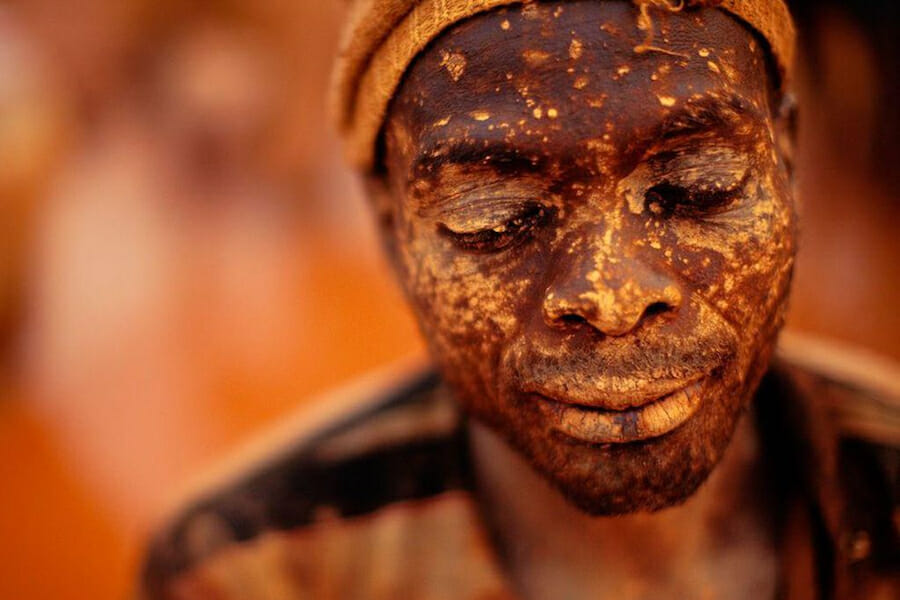
China’s Involvement in Mozambique
China-Mozambique ties are pretty typical of those with most African countries. Unlike many countries in Africa, however, Mozambique never recognized Taiwan. In 1963, five FRELIMO delegations visited China, including one headed by its leader at the time, Eduardo Mondlane. When a faction broke away from FRELIMO in 1965 and formed COREMO, China favored the new pro-Beijing COREMO organization but also continued to support FRELIMO. When COREMO disappeared in the early 1970s, China threw all of its support behind FRELIMO, which had pro-Moscow and pro-Beijing factions. This policy was dictated by the fact that the Sino-Soviet split had reached its peak. China stepped up its military training for FRELIMO fighters operating out of Tanzania. FRELIMO leader Samora Machel visited China in 1971 and 1975.
Mozambique became independent in 1975 and immediately recognized Beijing. China granted an interest-free loan of $56 million and sent the first in a continuing series of medical teams to Mozambique that has continued up to the present day. The Chinese embassy claims that since the first medical team arrived in 1976, Chinese medical staff have treated 1.3 million patients and trained more than 2,000 Mozambicans.
Samora Machel, however, preferred the USSR over China because it had provided more military support to FRELIMO during the liberation struggle. Relations improved briefly in 1978 when Machel visited China and about 100 Chinese military specialists were working in Mozambique.
China provided $60 million in credits, making Mozambique one of its largest aid recipients in Africa. This was followed by a setback. Mozambique criticized China over its border war with Vietnam and took the side of the Soviet Union during its intervention in Afghanistan. China also experienced an embarrassing incident in Maputo in 1982 when a junior officer in the embassy had a dispute with other staff members and killed nine of them.
China took advantage of a 1983 famine followed by a flood and offered much-needed assistance. Machel returned to Beijing in 1984 and obtained more than $20 million in economic aid. China continued to increase its aid; Mozambique did not criticize China during the 1989 Tiananmen Square crackdown. In the 1980s, the two countries signed numerous agreements. One in 1988 was between FRELIMO and the Communist Party of China (CPC), followed by China’s agreement to build Mozambique’s parliament building. President Joaquim Chissano visited Beijing in 1988.
Expansion of Relations
China-Mozambique relations did not advance significantly in the 1990s in spite of the fact that China became Mozambique’s natural partner after the collapse of the Soviet Union. By the late 1990s, high-level contact picked up in both directions with Chissano going to China in 1998 and 2004 and Mozambique’s premier visiting three times. They signed new trade agreements and China built Mozambique’s Ministry of Foreign Affairs.
The relationship took off in the 21st century. President Armando Guebuza attended the 2006 Forum on China-Africa Cooperation (FOCAC) and returned for the 2008 Olympic Games. Chinese President Hu Jintao visited Maputo in 2007 when he promised several new projects, including a $6 million agricultural technology center that was inaugurated in 2011 and a national stadium. China canceled $52 million of Mozambique’s debt.
As with most other African countries, the security relationship has consisted primarily of high-level exchange visits. In 2007, however, China gave the armed forces $1.5 million in nonmilitary equipment. Two years later it agreed to provide the military $3 million for the purchase of logistical equipment and to continue to train the military. In 2008, FRELIMO and the CPC signed a four-year memorandum on cadre training; China sends lecturers to FRELIMO’s Central School.
Most of China’s engagement in Mozambique is now focused on the economic relationship. A third of all roads in the country are being built by Chinese companies in addition to the auditor general’s office, Maputo International Airport, national soccer stadium, national conference center, communications networks, and water supply projects. China began offering five scholarships annually in 1992; about 200 hundred students were studying in China by 2012.
A joint Sino-Lusophone initiative known as Geocapital based in Macau created in 2005-2006 a private fund with the aim of channeling Chinese capital to Mozambique. This resulted in a joint venture called Zamcorp to promote development in the Zambezi River Valley. As of late 2011, Zamcorp had no projects under development. On the other hand, two financial institutions grew out of this effort: Moza Capital (investment banking) and Moza Banco (primarily corporate banking). By 2008, Moza Banco established a retail bank with Mozambican investors who have close ties to FRELIMO.
Although Moza Banco has not funded any big investments, it is looking at projects in energy and agro-industry. This initiative has had surprisingly little success so far. Nevertheless, in 2008, China became the second largest investor in Mozambique after South Africa and rose from number 26 a decade earlier. As of 2010, China had invested $607 million in Mozambique. In 2010, China pledged to invest $13 billion in industrial, tourism, mining and energy projects over the next five or ten years, depending on the source of the report. It is highly doubtful, however, that all of this investment will materialize.
The largest Chinese investment so far is Wuhan Iron and Steel Corporation’s $800 million to develop coal reserves for export to China and purchase of an 8 percent share of Riversdale, an Australian company, for $200 million that has coal concessions in Mozambique.
Mozambique’s prime minister made two visits to China in 2010 when he received promises from the Export-Import Bank for $165 million in financing to upgrade Maputo International Airport and build cement and cotton processing factories. In 2011, China funded at a cost of $156 million about one-quarter of the total cost of the All-Africa Games held in Maputo. A Chinese company began construction on a $439 million housing project in a middle-class suburb of Maputo. In 2011, a CPC delegation signed agreements to establish a Confucius Institute that opened in 2012 and a Portuguese-language station for China Radio International.
President Guebuza during a six-day state visit to China in 2011 signed 12 financial agreements with China, including $15.8 million for distance education and science and technology programs, half as donations and half as interest-free credit. Guebuza regularly praises China, describing it as a partner and not a colonizer. China Kingho Energy announced it would provide initial funding for construction of a coal terminal at the port of Beira and upgrade the Sena rail that links the Moatize coal mines in northwest Mozambique. One of the most recent projects was the launching of a Center for Cooperation on Poverty Reduction, which will draw on Chinese strategies for dealing with poverty.
China-Mozambique trade is modest and consistently favors China. This is a potential problem area, although large coal exports to China will probably change the trade balance. While trade with China is greater than US-Mozambique trade, Mozambique is not one of China’s largest African trading partners. Mozambique imports construction material, machinery, motorcycles, motor vehicles, electronic products, footwear, and electrical products from China. It exports primarily aluminum, oilseeds, cotton, seafood and timber to China. Mozambique Airline (LAM) announced that it will begin direct flights to China later this year.
Challenges in the Relationship
The relationship has experienced a few problems at the governmental level and generated much more skepticism outside the government-to-government structure. Mozambique’s Ministry of Labor has fined a number of Chinese companies and revoked work permits of some Chinese workers. In 2007, Mozambique seized 531 containers of illegal log exports valued at $7 million purchased by Chinese companies. After paying fines, the shipment went forward. Mozambican civil society and NGOs have been critical of Chinese business persons and their Mozambican associates for the illegal export of forest products and plundering of fisheries resources, often by bribing local officials.
In 2007, Mozambique reportedly granted China leases to establish Chinese-run farms and cattle ranches for 3,000 settlers. The report caused such uproar that the government was forced to deny that there was any such agreement. China remains interested, however, in agricultural development for both local sale and export to China. This is another area where transparency is in short supply.
There has also been criticism of too many Chinese workers in Mozambique who take jobs that should go to Mozambicans. Chinese companies have addressed this issue and by 2010 had significantly increased local hires. Estimates on the number of Chinese in Mozambique as of 2011 ranged from 7,000 to 12,000, not a huge number compared with some other African countries. Early reports indicated that China would finance the controversial $2.3 billion Mphanda Nkuwa dam downriver from the Cahora Basa dam. Chinese funding usually guarantees a Chinese company will build the dam. In this case, however, Mozambique subsequently awarded the project to a consortium of two national energy companies (60%) and a Brazilian construction company (40%). The reasons for this change of signals are not clear.
Future of the Relationship
As the major financier and builder in Africa and Mozambique today, that link alone will guarantee strong interaction with China for years to come. The Macau connection with the Lusophone countries of Africa is also an important part of the relationship with Mozambique, especially concerning investment. Loro Horta, an expert on Sino-Lusophone Africa relations, concluded last year that “China is fast emerging as the most important economic and diplomatic player in Mozambique, bringing billions of dollars in investments and asking no questions.”
He added that “Sino-Mozambican relations are likely to continue to grow with Beijing emerging as the main economic and strategic player in Mozambique and in East Africa.” Horta did note that riots, high crime rates, and poor infrastructure are slowing down what would otherwise be an even faster Chinese expansion in Mozambique.
A former Mozambican foreign minister suggested a more cautionary evaluation of the China-Mozambique relationship: “In the end, it’s up to us, the Chinese like anyone else have their interests and will plunder us to the extent that we let them.”
